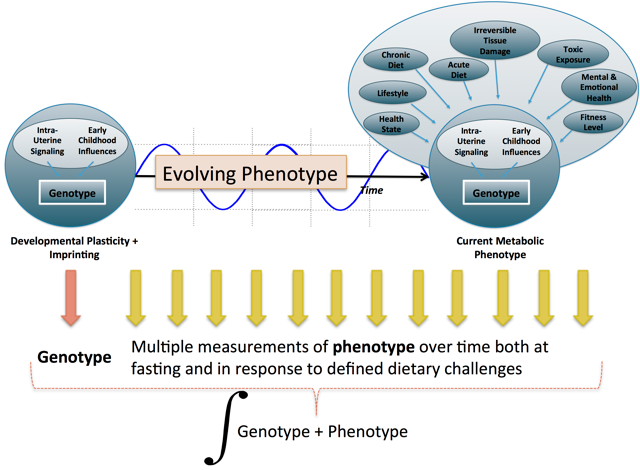- The idea of personalizing health is becoming more widely accepted as an important area of research to solve the growing problems of obesity-associated metabolic disease. With conditions like the metabolic syndrome on the rise, there is a need to understand both underlying mechanisms and approaches for differentiating those individuals who will go on to develop overt disease from those who will not. There is an ongoing debate among the leaders in the field of cardiometabolic health as to whether metabolic syndrome is a useful diagnosis, given that only a proportion of individuals who have metabolic syndrome go on to develop disease.
- Our lab has detailed a new framework that takes into account individual variation in phenotype as a means of improving the assessment of disease risk in metabolic syndrome. We have demonstrated that targeted lipidomics can be used to discern pathway-specific metabolic changes in the liver, and that serum lipidomic profiles can differentiate between responders and non-responders to treatment. We have published several review articles and book chapters on the use of metabolomics as a means of phenotyping health.
- Together, this work is building toward a repertoire of specific protocols and assessment tools to assess the impact of different nutrients, foods, and diets on individual health.
© 2026 Zivkovic Lab
Theme by Anders Noren — Up ↑

